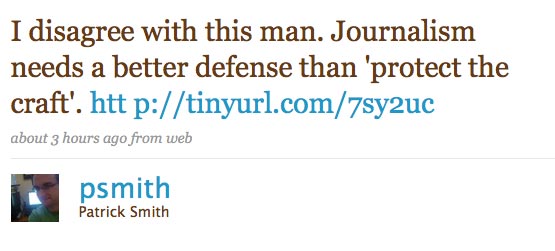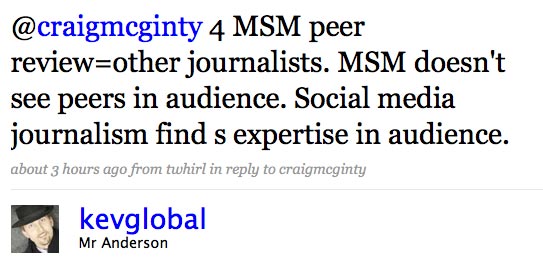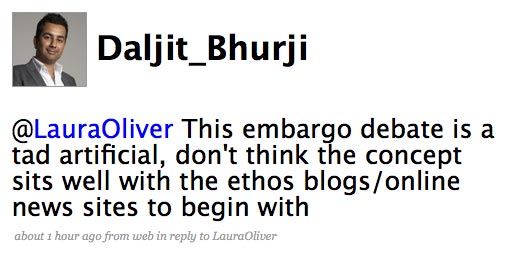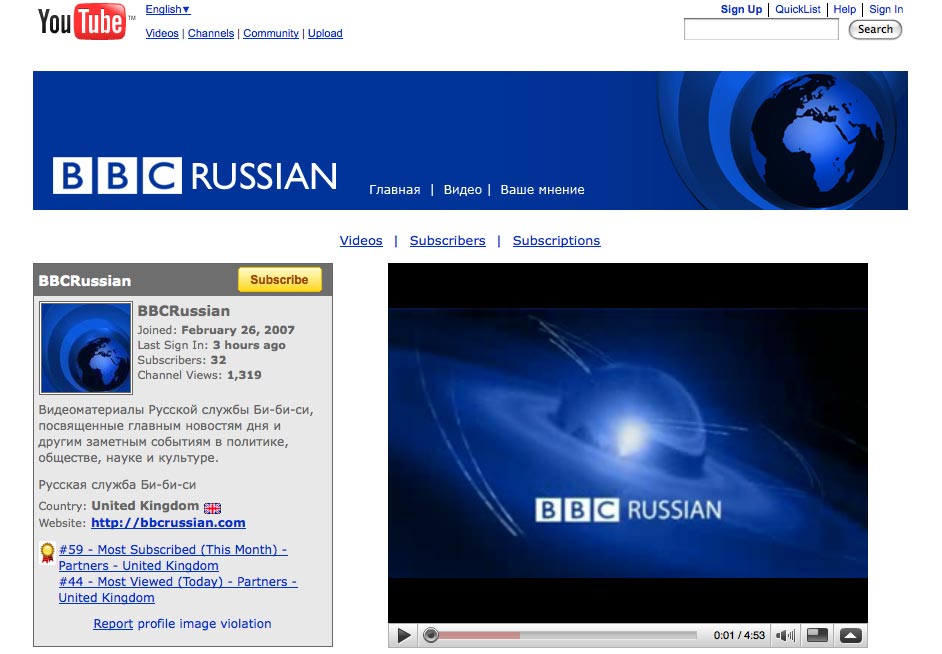Derivadow.com explains how the BBC has been experimenting with using the web as a CMS for its programmes and music sites.
Tag Archives: BBC
BBC crime journalism: Visual innovation from BBC News on teen murder mapping / Panorama faces allegations for paying teenager to brandish gun
BBC’s Panorama programme faced allegations last week that a fixer had paid a teenager to wield a gun for a documentary film.
“A teenage gang member was paid £50 by a ‘fixer’ to flaunt guns for a BBC programme, a court heard.”
The BBC has denied the allegations, and Merseyside Police are to further investigate the claims made in court.
Meanwhile, in a more positive look at the BBC’s crime journalism, Tracy Boyer praises its package designed to map UK’s teen murder toll: ‘great use of data visualization in this latest project,’ she says.
“BBC’s package is divided into four sections: a text overview, the database of victims, victim-map mashup, and a slew of statistics.”
Manchester Evening News mojo captures Ronaldo crash
The Manchester Evening News‘ decision to equip some journalists with Nokia N95 handsets has started to bear fruit, as mojo (mobile journalist) Nicola Dowling captured Manchester United footballer Cristiano Ronaldo’s recent fender bender.
Dowling’s mobile pics from the scene were supplemented with some video footage, which shows just how high quality the N95 cameras are:
According to a report on HoldtheFrontPage, Dowling’s footage and images were picked up by the Sun, BBC and Sky News.
Evening Standard skips over error in BBC appointment gossip
The paper’s ‘Londoner’s Diary’ column had speculated that the new World Service director job, advertised internally, was being kept open for the BBC’s News Director Richard Sambrook, allegedly annoying ‘ex-BBC types’.
Sambrook was quick to correct it on his own blog: “I’m not a candidate for the job, because … it reports to me and I will be deciding who gets it.”
The Londoner subsequently corrected it like this, omitting to mention where the ‘fears’ had originated:
“There were also fears that the BBC’s Director of Global News, Richard Sambrook, was said to be eyeing up the post himself and how he would have been a shoo in for the job. The BBC press office hotly denied my suggestion that the post was being kept open for Sambrook, claiming that as Director of Global News, the new Director of World Service would report to him and that Sambrook will be involved in appointing someone to the job himself.”
FollowtheMedia (Write On): A look at Al Jazeera English coverage of Gaza
By and large, Al Jazeera is ‘doing ok’ in its Gaza coverage, writes Philip Stone. He takes a look at the aspects of its reporting and concludes that “its coverage of the Mumbai attacks and now Gaza shows it certainly has logistical advantages in that part of the world, and if it can only keep its reporters and anchors straight for a mainstream international audience, then it really can be a viable cable news alternative to CNN International and BBC World.”
BBC’s Paul Mason: Newsrooms offer journalists peer review that ‘pyjama bloggers’ can’t replicate
Paul Mason, economics editor of BBC’s Newsnight and National Union of Journalist (NUJ) rep for the programme, gives some fairly frank thoughts to the union on journalism, its future and its relation to new technologies and forms of publishing in the video interview below.
“What you have to do is to try and define what the skilled class of professional journalist actually does in that world. What makes us worth employing? We are the ones who provide accurate information: we’re not going to disappear,” he says, before asking how many bloggers can be described as authoritative.
Discussing recent journalism job losses, Mason argues that this is not the result of just the recession, but has been caused by ‘deskilling and the rise of new technology’.
Accuracy, authority and the peer review mechanism of the newsroom will safeguard journalism’s future, he adds.
“A newsroom is a real-time peer review system – that bloggers in their pyjamas can’t replicate.”
Is this really the case? Mason’s views have sparked some reactions among journo-bloggers, including Kevin Anderson and Patrick Smith:


Your thoughts please.
Guido to introduce community rating system to blog
(or, ‘how many times can we use the word ‘comment’ in one blog post’?)
Guido Fawkes got the comments going today with a post that said he is ‘mulling over’ whether to moderate comments over the holiday period. He also announces that in the new year a ‘community rating’ element will be introduced to his blog (details at end of this post).
Guido Fawkes, aka Paul Staines, referred back to November, to the Goldsmiths seminar on media ethics and a comment from the Times Comment editor, Anne Spackman, who said that TimesOnline spends ‘six figures’ on pre-moderating online comments [unclear over what time period – Journalism.co.uk will follow-up soon. UPDATE 19/12: Anne Spackman told Journalism.co.uk that the paper cannot currently clarify exact details, but that a six figure bill is paid to another partner.]
Fawkes said today on his blog:
“It is certainly expensive in time, every morning Guido deletes a load of comments which have, in his rather arbitrary judgement, just gone too far.”
Journalism.co.uk was also at the Goldsmiths event and spoke to Fawkes afterwards. He told Journalism.co.uk that he doesn’t moderate comments – ‘it has to get pretty gynecological before I do’.
In regards to the BNP list (which had leaked that week): “I did allow it. oh terrible, terrible, terrible. Oh well…”
“I deleted the stuff about Baby P,” he told Journalism.co.uk.
“I noticed it [information about Baby P] was still on the BBC’s website. I called them up, and they said ‘we’re not taking it down because the order doesn’t apply’. I said ‘well, is it because it’s an order or because it is right or wrong?'”
Fawkes said that if he is found to be ‘in the wrong’ he’ll take something down, but added that ‘it’s very difficult to send me a writ.’
“Unless you catch me having a drink here, where are you going to send the writ?”
“There’s no bricks and mortar,” he said.
While Guido Fawkes says on his blog post that he takes a ‘sticks and stones view to a large extent’, he outlines a number of changes to be introduced in the New Year:
“[Y]ou [the users] will still be able to say what you like (within somewhat arbitrary inconsistent limits) without pre-moderation or registering. However there will be incentives for those who produce better quality commentary based on a new element of co-conspirator community rating.
“Good comments will be more prominently displayed, disliked comments will be less prominent. The biggest innovation is that it will be possible for readers to set their own tolerance thresholds. Poorly rated comments will be invisible to those who set their preferences accordingly.
“If you only want to see comments judged by co-conspirators to be witty, amusing or illuminating, set your threshold to ‘Recommended’. Don’t want to read foul language? Set your threshold to ‘U’. Want to see all and any comments no matter how foul? Set your threshold to ‘XXX’.
“If your commentary is consistently recommended your comments will automatically be more prominent in the future and may even get highlighted on the frontpage.”
Unmoderated comments follow his post.
This post is embargoed until 12:55pm (GMT), Dec 18 2008
TechCrunch’s announcement that it will break every embargo it agrees to has caused something of a stir amongst PR and journo bloggers alike.
TC’s Michael Arrington explained the good, the bad and the ugly side of embargoed news releases:
“A lot of this news is good stuff that our readers want to know about. And we have the benefit of taking some time during the pre-briefing to think about the story, do research, and write it properly. When embargoes go right, we get to write a thoughtful story which benefits the company and our readers.
“But there’s a problem. All this stress on the PR firms put on them by desperate clients means they send out the embargoed news to literally everyone who writes tech news stories. Any blog or major media site, no matter how small or new, gets the email. It didn’t used to be this way, but it’s becoming more and more of a problem. As the economy turns south, PR firms are under increasing pressure to perform and justify their monthly retainers which range from $10,000 to $30,000 or more. In short, they have to spam the tech world to get coverage, or lose their jobs.”
Increased competition in the journalism industry is causing more and more embargoes to be broken, argues Arrington, creating ‘a race to the bottom by new sites’ and a climate in which, he says, TC can’t operate.
Certain ‘trusted’ companies and PR firms will continue to have their embargoes honoured by the site, but the hope is that by disregarding the rules firms will have to be more selective with who they break news to and clamp down on those repeat offenders breaking embargoes.
Arrington will also be posting a blacklist – now topped by TC – listing all firms and publications involved when an embargo is broken.
ReadWriteWeb has come back on Arrington’s decision, saying it will honour embargoes. While the site agrees that the press should get better at respecting them, RRW says embargoes give more outlets a chance to cover a story, providing multiple perspectives for readers.
“They give multiple blogs a chance to review a technology in depth, instead of making it a race (…) Embargoes lead to more total coverage than exclusives (…) Exclusives are the tactic of people with weak products and of reporters who compete better in bullying than in writing.”
Journalism.co.uk receives its fair share of embargoed news and releases – and has never knowingly broken any, because we want to cultivate good relations with tipsters, companies and PR firms.
This doesn’t mean we’ll cover everything that gets sent our way. We also know other journalism news sites will be getting much of the same info and agree this can make it more of a race to get the news out.
But from our perspective: we have two full-time journalists, so having good contacts with companies and PR is vital to our expanding our newsgathering.
However, as a twittered reply from @Daljit_Bhurji, founder of Diffusion PR, suggests, does the old-fashioned embargo model really work for online?

Reporting on our specialism – as I’m sure is the case with many other subject-specific publications – it’s increasingly apparent that the organisations/titles/companies we write about are becoming their own news sources. e.g. have their own press office, press release feed, blog/write about their own developments.
Sending an embargoed release about this info to us later isn’t a great help. Most of the time I’d rather learn about it if it’s covered in a blog-style like the BBC Editors blog or Guardian’s Inside blog.
We’re then free to dig deeper into that news if needs be and are given a direct line to the people behind it; or pass it on through another of our channels like Editors’ Pick.
Holding back the news tide with embargoes seems to go against the way information and news spreads online through links, official ‘leaks’ (as referred to above), blog networks etc.
What’s more it’s not just quote-unquote journalists covering news releases any more – is the industry expecting other writers and bloggers online to respect embargoes? It goes against the grain of the web.
Are embargoes redundant in the online age?
‘Twelve Days of Online Media Christmas…’ Journalism.co.uk’s melodious 2008 list
Well, we could have brought you ‘Flocking Around the Twitmas Tree’, ‘We Three Nings’ or just a straightforward end of the year list (if only to add to our list of lists), but instead we chose this: your sing-along treat to round-up 2008 is the ‘Twelve Days of Online Media Christmas’ (hyperlinked to relevant stories, but bear in mind it’s a selection of picks and not comprehensive…).
On the first day of Christmas my feed read’r brought to me … An editor in a law court
Colin Myler, News of the World
On the second day of Christmas my feed read’r brought to me … Two arrested hacks
Milton Keynes Citizen’s Sally Murrer / ITV’s John Ray (video below)
… And an editor in a law court.
On the third day of Christmas my feed read’r brought to me … Three web gaffes
Steve Jobs and CNN / United Airlines stock collapse / AFP photo ‘altering’
… Two arrested hacks, And an editor in a law court!
On the fourth day of Christmas my feed read’r brought to me … Four journo forums
Wired Journalists / Journalism Research / Visual Editors / Journalism.co.uk forum
… Three web gaffes, Two arrested hacks, And an editor in a law court!
On the fifth day of Christmas my feed read’r brought to me … Five Tweeeeeetin’ friends
Stephen Fry / Paul Carr / John Cleese / Mark Mayhew (Hurricane Gustav) / the Mad Men
… Four journo forums, Three web gaffes, Two arrested hacks, And an editor in a law court!
On the sixth day of Christmas my feed read’r brought to me … Six news sites out-linking
WashingtonPost.com, BBC, NYTimes.com, CNN.com, Drudge Report, Not the AP (they didn’t even want to be linked to)
… Five Tweeeeeetin’ friends, Four journo forums, Three web gaffes, Two arrested hacks, And an editor in a law court!
On the seventh day of Christmas my feed read’r brought to me … Seven feeds a-mashing
Publish2.com, Daylife, Delicious, Digg, Technorati, FriendFeed, Yahoo Pipes
… Six sites out-linking, Five Tweeeeeetin’ friends, Four journo forums, Three web gaffes, Two arrested hacks, And an editor in a law court!
On the eighth day of Christmas my feed read’r brought to me … Eight maps a’plotting
Hurricane Gustav tracker, BBC Beijing Olympics map, PaperCuts newspaper job losses map, Economist pre-election map, NYTimes.com post-election map, Managingnews.com’s newstracker during Chinese earthquake, Interactive maps of Canadian tornado damage, Journalism.co.uk new timeline-maps.

… Seven pipes a-mashing, Six sites out-linking, Five Tweeeeeetin’ friends, Four journo forums, Three web gaffes, Two arrested hacks, And an editor in a law court!
On the ninth day of Christmas my feed read’r brought to me … Nine strikers strikin’
Le Monde, Writers’ Guild of America, Australian Fairfax newspapers, Express Newspapers, Sheffield Star.
(or at least thinking about it…) Trinity Mirror Midlands, Telegraph Media Group, ITV regional, BBC Scotland.
… Eight maps a-plotting, Seven pipes a-mashing, Six sites out-linking, Five Tweeeeeetin’ friends, Four journo forums, Three web gaffes, Two arrested hacks, And an editor in a law court!
On the tenth day of Christmas my feed read’r brought to me … Ten blogs a-blooming
10,000words.net, Adrianmonck.com, Jay Rosen’s PressThink, OnlineJournalismBlog, BBCJournalismLabs, BusinessMediaBlog, RegretTheError.com, Publishing2.com, Spokesman Review’s Daily Briefing, Tomorrow’s News Tomorrow’s Journalists

… Nine strikers strikin’, Eight maps a-plotting, Seven pipes a-mashing, Six sites out-linking, Five Tweeeeeetin’ friends, Four journo forums, Three web gaffes, Two arrested hacks, And an editor in a law court!
On the eleventh day of Christmas my feed read’r brought to me … Eleven papers packing
(up for new offices) The Guardian, the Birmingham Mail, the Independent.
(away their desks forever) NY Sun, Belfast’s La Nua, Kazakhstan’s Law and Justice, Moscow’s The Exile, US Post newspapers, Trinity Mirror weekly titles, Switzerland’s Mittelland, three editions of Spanish Metro.
… Ten blogs a-blooming, Nine strikers strikin’, Eight maps a-plotting, Seven pipes a-mashing, Six sites out-linking, Five Tweeeeeetin’ friends, Four journo forums, Three web gaffes, Two arrested hacks, And an editor in a law court!
On the twelfth day of Christmas my feed read’r brought to me … Twelve sites a-starting
Trinity Mirror mobile sites, outside.in UK, Spot.Us, Hubdub.com, Coventry Telegraph, FT’s Alphaville Long Room, Magicalia, DailyPostCymraeg.co.uk, Time Out Kuala Lumpur, the BusinessDesk Northwest, the Daily Beast.
(and re-focusing) CSMonitor.com.
… Eleven papers packing, Ten blogs a-blooming, Nine strikers strikin’, Eight maps a-plotting, Seven pipes a-mashing, Six sites out-linking, Five Tweeeeeetin’ friends, Four journo forums, Three web gaffes, Two arrested hacks and an editor in a law court!
YouTube round-up: BBC Russian and Davos videos
 The BBC has made good on its October promise to launch six new video channels on YouTube in Urdu, Spanish, Russian, Persian, Portuguese and Arabic and has rolled out its Russian stream.
The BBC has made good on its October promise to launch six new video channels on YouTube in Urdu, Spanish, Russian, Persian, Portuguese and Arabic and has rolled out its Russian stream.
The BBC Russian YouTube channel will feature footage from BBC Russian correspondents and Russian-language reports on major news events.
The other multi-language channels will be launched between now and early 2009, a press release from the corporation said.
YouTube is getting in on the act again ahead of the World Economic Forum at Davos next month by asking users to send their video answers to the following questions:
Are you confident that global growth will be restored in 2009?
Will the environment lose out to the economy in 2009?
Will the Obama administration improve the state of the world in 2009?
Should company executives have a code of ethics similar to doctors and lawyers?
The best clips, which can be uploaded to the site’s Davos channel, will be broadcast at the forum during sessions; while the user who creates the best video, as voted for by other YouTubers, will have the opportunity to attend the event, all expenses paid, as a citizen reporter for YouTube.
In a repeat of last year’s event, a YouTube booth for attendees of the forum to upload their video responses to the debates will also be available, according to a press release.
This seems to be just one strand of the forum’s multimedia activities. It’s also represented on Twitter, MySpace, Facebook, Flickr and questions for press conferences can be submitted via Qik and Mogalus.
